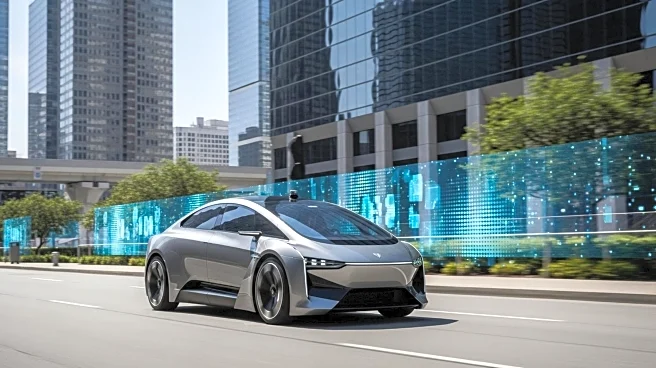What's Happening?
Bot Auto, an autonomous trucking company, has successfully completed its first humanless hub-to-hub validation run in Houston. The driverless truck operated without any human intervention, navigating real-world traffic conditions both during the day and night. This milestone serves as a validation benchmark for Bot Auto's autonomy stack and test protocols, achieved within two years of the company's founding. The truck was equipped with multiple layers of protection, including diversified redundancy and continuous health monitoring, ensuring safe operations under normal and unexpected conditions. Dr. Xiaodi Hou, founder and CEO of Bot Auto, emphasized that this validation run is a significant step in proving the maturity and safety of their autonomous technology.
Why It's Important?
The successful completion of Bot Auto's humanless test run marks a significant advancement in autonomous vehicle technology, particularly in the logistics sector. This development could lead to reduced operational costs and increased efficiency in freight transportation, potentially transforming the industry. By eliminating the need for human drivers, companies can lower labor costs and improve safety by minimizing human error. The achievement also highlights the growing capabilities of AI technologies in real-world applications, which could spur further investment and innovation in autonomous systems. Stakeholders in the logistics and transportation industries stand to benefit from these advancements, while traditional trucking jobs may face challenges as automation becomes more prevalent.
What's Next?
Bot Auto plans to continue its validation efforts with its first humanless commercial cargo run between Houston and San Antonio in the coming months. This step will further test the reliability and safety of their autonomous systems in commercial operations. As the company progresses, it may face regulatory scrutiny and the need to address public concerns about safety and job displacement. The success of these operations could pave the way for broader adoption of autonomous trucking solutions, influencing industry standards and regulations. Stakeholders, including policymakers and industry leaders, will likely monitor these developments closely to assess their impact on the transportation sector.










